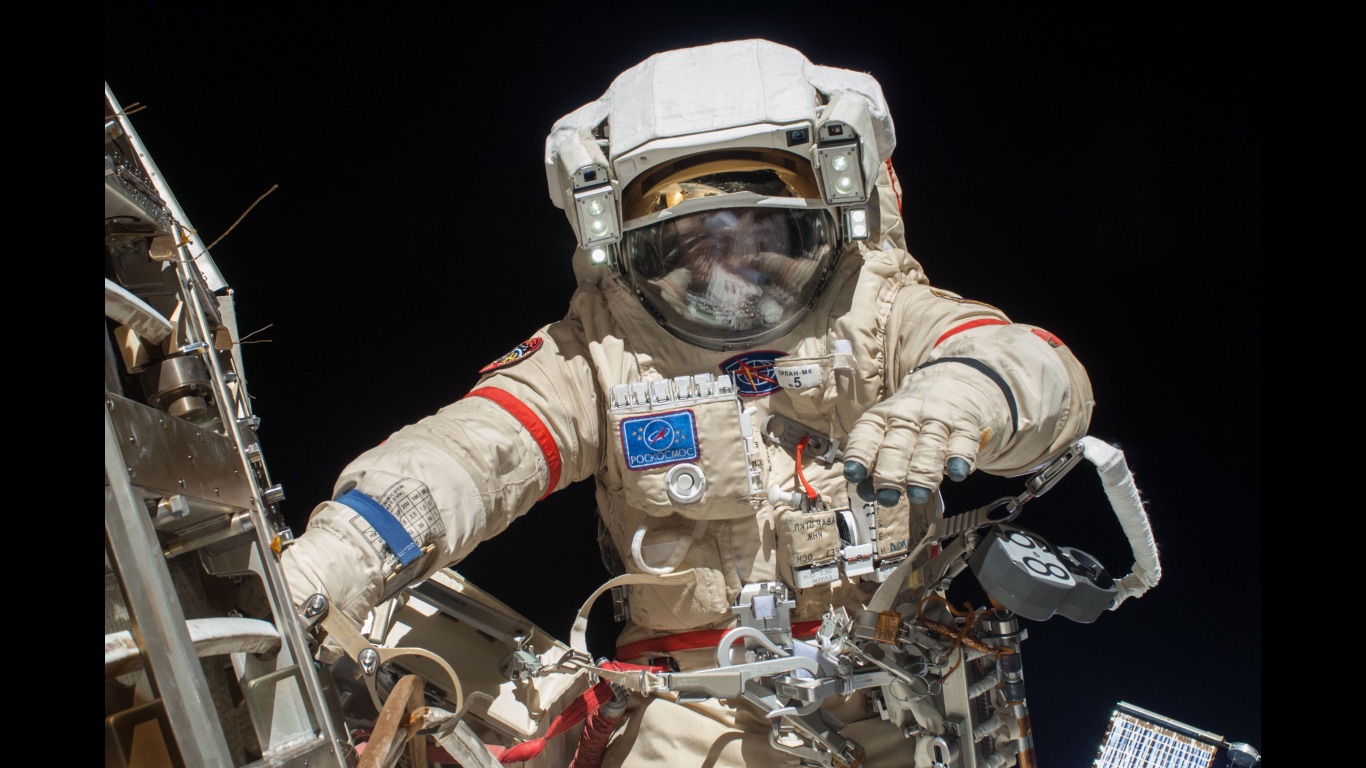It's 10 p.m., Do You Know What Your Astronauts Are Doing?

How do you feel about helicopter parenting? The result may determine whether you would be a better fit with NASA's astronaut program or its Russian counterpart.
During a panel at the International Astronautical Congress in Washington, D.C. in October, one representative of each agency explained the differences in communication styles on board the International Space Station. And those distinct styles could have implications for the success of missions that travel farther from Earth, they said.
"I understand that the Russian crewmembers take a little bit different of an approach," William Paloski, head of NASA's Human Research Program, said during a panel at the conference. "They only communicate with the ground a few times a day, whereas the U.S. crewmembers are in constant communication with ground."
Related: Astronauts Enjoy Space Veggies. Here's the Future of Cosmic Salads
Oleg Kotov, a representative of Russia's space agency, Roscosmos, elaborated on the differences. He's experienced the space-communication dynamic firsthand; Kotov has flown to space three times as a cosmonaut, including two six-month stays on the International Space Station.
Kotov said he believes that crewmembers, at least on the Russian side, can be ready for more distant excursions as such missions arise. "Cosmonauts can definitely operate and fulfill most of the tasks which are needed to be done," independently of ground control, he said, although some individual crewmembers are more successful than others. Training increases that success rate, he added. "We're pretty much optimistic with the operational capability of the crewmember to perform the needed tasks."
In low Earth orbit, communication between astronauts and ground control is pretty smooth, hence NASA's willingness to keep up a steady stream of chatter between space and ground. But NASA will need to start changing that approach if it wants to send people to Mars, for example, where it could regularly take half an hour for a crewmember to get ground control's response to a simple question.
Get the Space.com Newsletter
Breaking space news, the latest updates on rocket launches, skywatching events and more!
"They're on their own," Paloski said, adding that the distance means not only that astronauts would need to operate independently, but also that NASA would need to get used to giving them the information they need to do so. Right now, decisions tend to be made during those conversations with ground control, reducing the amount of information astronauts need at their own fingertips.
"If we really want to use the station to simulate deep-space missions," he said, "we have to … make data available to the crewmembers aboard to make their own decisions and let them go off and make their own decisions and do their own work, so that they can better simulate the kinds of environments they're going to be in."
And besides, depending on the personality, astronauts may also find less chatter a breath of fresh air, Kotov implied. He compared ground control to parents "trying to overcontrol their kids on the station, giving them permission to do every step, [saying] that's great, taking care of them," he said.
Not all astronauts might thrive under such chatty circumstances, Kotov suggested, and may sometimes want more privacy. It's a situation we've all been in, after all: He compared crewmembers to teenagers here on Earth. But it's probably harder to slam doors in space.
- Watch Neil deGrasse Tyson Talk Hair, Barfing and Vegetarianism with Astronauts in Space
- NASA Spacewalk Sparks Joy in Marie Kondo as Astronauts Declutter Space Station
- May the Piccolo Be with You! Watch an Astronaut Perform the 'Star Wars' Theme in Space
Email Meghan Bartels at mbartels@space.com or follow her @meghanbartels. Follow us on Twitter @Spacedotcom and on Facebook.

Join our Space Forums to keep talking space on the latest missions, night sky and more! And if you have a news tip, correction or comment, let us know at: community@space.com.

Meghan is a senior writer at Space.com and has more than five years' experience as a science journalist based in New York City. She joined Space.com in July 2018, with previous writing published in outlets including Newsweek and Audubon. Meghan earned an MA in science journalism from New York University and a BA in classics from Georgetown University, and in her free time she enjoys reading and visiting museums. Follow her on Twitter at @meghanbartels.









